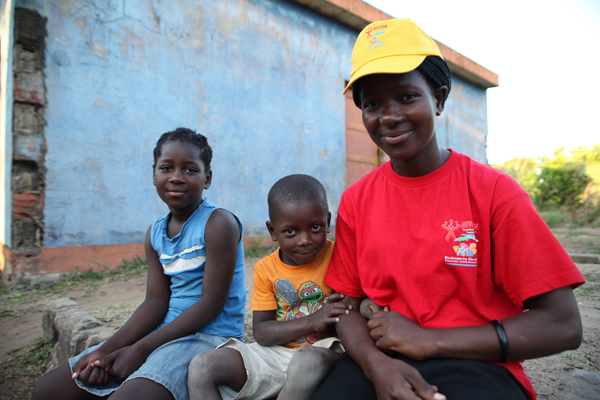
It's fall in Washington, the time when global health advocates usually make a final push to address critical health initiatives in the dwindling days of the Congressional session.
This year, much of the high-level advocacy work occurred during summer vacation, when the city usually empties out. In July there was a reverse migration in D.C., with nearly 25,000 leaders, scientists, journalists, advocates, and people living with HIV arriving for the AIDS 2012 global conference.
With the historic return of the International AIDS Conference to the U.S. -- only possible after the lifting of the unconscionable travel ban on HIV-positive visitors -- HIV/AIDS and global health was once again front and center in our national dialogue.
There was a renewed focus on the domestic epidemic, and the surprising fact that too few Americans are aware of their HIV status. There was also a visible display of U.S. leadership in curbing the global AIDS epidemic, particularly for mothers and children worldwide.
U.S. and global leaders stood side by side in support of a Global Plan to eliminate new HIV infections among children and keep their mothers alive. In her remarks at the opening plenary session, Secretary of State Hillary Rodham Clinton underscored U.S. commitment to an AIDS-free generation, and prevention of mother-to-child transmission as a cornerstone of our strategy to achieve it. She backed up these words with an additional commitment of $80 million from the U.S. to eliminate pediatric HIV/AIDS.
Later in the conference, the Elizabeth Glaser Foundation's Ambassador Florence Ngobeni-Allen made an indelible impression on a Capitol Hill audience with the poignancy of her personal story. She described the real-life effects of U.S. investment in children, mothers, and families in her native South Africa.
After losing her first child to an AIDS-related illness fifteen years ago, Florence became a counselor to other mothers facing the same desperate situation. She witnessed the transformative effects of the U.S. President's Emergency Plan for AIDS Relief (PEPFAR), which brought greater access to HIV prevention and treatment to mothers and children in South Africa.
"Your programs have saved so many lives," she told assembled leaders and advocates. "Today, there is no reason for any child to die of HIV."
Florence's family is living proof of this -- she is now the mother of two, HIV-negative boys.
The conference delegates left Washington with a clear focus on achieving an AIDS-free generation. But in the weeks following, HIV/AIDS and global health have largely disappeared from our political dialogue. National attention is squarely focused on the November elections, and we haven't seen the "post-conference" bounce that these issues deserve.
This is not surprising in a presidential election that has so far been dominated by economic issues. But in a similarly-focused election twenty years ago, two brave convention speakers -- Elizabeth Glaser and Mary Fisher -- demanded that Democrats and Republicans alike confront the issue of AIDS. Although there was mention of support for PEPFAR and the Global Fund at this summer's conventions, this kind of high-level call to action was noticeably absent in Tampa and Charlotte.
There is optimism among global health leaders that we are seeing the beginning of the end of AIDS. But we won't get there without the public support that comes from knowing it is within our grasp -- and the political will to make it happen.
Last week, a new UNICEF report showed that HIV-related child mortality has dropped considerably over the past decade in most countries in sub-Saharan Africa, the center of the epidemic and of PEPFAR and the Global Fund's efforts.
Still, HIV and related illnesses are a leading cause of death for children in many countries in the region -- representing 10% of childhood deaths in Mozambique and Zambia, and as much as 28% of childhood deaths in South Africa.
While HIV in children is both preventable and treatable, only about 28% of HIV-positive infants and children receive critically needed antiretroviral drugs -- half the rate of adults. Without early identification and treatment, most of these children won't live to see their fifth birthday.

As USAID Administrator Raj Shah said, "All of us are responsible for the survival of the world's children...ensuring that no family needlessly suffers the loss of a child would be one of the great moral victories of our time."
And each one of is responsible for demanding that this moral imperative become a part of our political debate.
The U.S. has a proud record -- built by both Democrats and Republicans -- of fighting AIDS and related illnesses in children and families around the world. As issues like foreign assistance are debated in the weeks to come, we should remember our successes -- and families like Florence's.
But we must also remember the 70% of children who are not receiving HIV treatment, and the 50% of HIV-positive, pregnant women who are not receiving effective services to prevent their babies from being infected in the first place.
We must continue our efforts until every woman and every child is protected against HIV and AIDS and other preventable and treatable illnesses.
On behalf of them, let's demand a campaign promise from our leaders this fall.
Like Elizabeth Glaser and Mary Fisher before us, let's demand that our government continue its leadership role in fighting HIV/AIDS, and increase funding for health interventions that we know work.
With one big collective push, we can achieve an AIDS-free generation.
(Photo Credit: Keith Walker for EGPAF)
